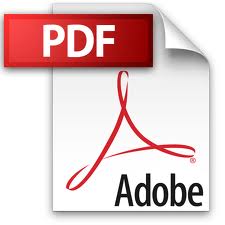Publication Ethics and Publication Malpractice Statement
Authorities of The Beskids Bulletin adhere to the highest standard of ethics of publications of scholarly research work. Publication Ethics and Malpractice Statement complies with COPE's Best Practice Guidelines for Journal Editors.
Editors
The editor-in-chief of Beskydy is responsible for deciding which of the articles submitted to the journal should be reviewed or published. Editors are accountable for and should take responsibility for the contents and quality of the journal. The decision is based on the recommendation of the journal's editorial board members and reviewers. Editors are responsible for protection of the reviewer's privacy in the review process. Only manuscripts with two approving reviews could be published. If no decision concerning one manuscript could be reached based on two delivered reports, additional opinion by additional reviewer could be requested. Information or ideas obtained through peer review shall remain confidential and shall not be used for any personal benefit.
The editor and any editorial staff of Beskydy journal must not disclose any information about submitted manuscripts to anyone except for the author, reviewers, other editorial advisers, and the publisher, as appropriate. Authors will be informed about the decision on their manuscript as soon as possible. If accepted, the paper would normally be published in the following available issue. Unpublished material disclosed in submitted manuscripts must not be used in the editor's own research.
The editor should always evaluate intellectual content of the articles without regard to religious belief, ethnic origin, race, gender, sexual orientation or political philosophy of the authors.
Reviewers
Peer review assists the editor in making editorial decisions and through the editorial communications with the author it may also assist the author in improving the paper. Reviewers should conduct their reviews objectively, avoiding personal criticism and bias. Criticism of the author's personality or the topic is unprofessional and inappropriate. Reviewers should explain their recommendations clearly and explicitly and provide rationale and justification. Reviewers are requested to complete their reviews within the timeframe of 30-40 days. If a reviewer does not submit his/her report in a timely manner, the paper is immediately referred to another qualified reviewer. Reviewers shall refuse the review the manuscripts in case of conflict of interest emerging from competitive, collaborative, or other relationships and connections with any of the authors, companies, or institutions linked to the manuscripts. Reviewers who believe that they are not qualified to carry out the review of the received manuscript should inform Editor immediately and withdraw from the review process.
Reviewers are obliged to keep all received manuscripts in strict confidentiality and must not use them for any personal benefit; they must not discuss the papers with any other person, including the authors. Any similarity to published papers or a doubt to plagiarism must be immediately reported to the Editor. The reviewer should alert the Editor in case of any professional drawbacks, such as diversion from the topic of the paper in terms of scope of research, or lack of time to carry out a proper examination.
Authors
Authors submitting manuscripts should ensure that they submit their original work that is not under consideration or accepted for publication elsewhere and that has not been published as copyrighted material before. If authors have used ideas, and/or words of others researchers, they should acknowledge that through proper quotes or citations. A paper should contain sufficient and detailed references to allow others to retrace the work wherever possible. Reported objectives, discussions, data, statistical analysis, and results should be accurate. If a research study involves chemicals, procedures or equipment having any unusual hazards associated with their use, the author(s) must clearly identify these in the submitted manuscript. Fraudulent or knowingly inaccurate statements constitute unethical behaviour and are unacceptable. Papers where such problems are identified are automatically rejected and authors are notified. When a paper is submitted for possible publication, the submitting author makes a written statement that the paper as submitted is not under consideration or accepted for publication elsewhere. Simultaneous submission is considered unethical and is therefore unacceptable.
Authorship should be limited to those who have made a significant contribution to the conception, design, execution, or interpretation of the reported study. All those who have made significant contributions should be listed as co-authors. Where there are others who have participated in certain substantive aspects of the research project, they should be acknowledged or listed as contributors. The corresponding author should ensure that all appropriate co-authors, and appropriate co-authors only, are included in the paper, and that all co-authors approved the final version of the paper and agreed to its submission for publication.
If the author identifies a significant error or inaccuracy in his/her own published work, it is the author's obligation to promptly notify the journal editor or publisher and cooperate with the editor in order to retract or correct the paper.
Emanuel KulaEditor-in-Chief
e-mail: kula@mendelu.cz


